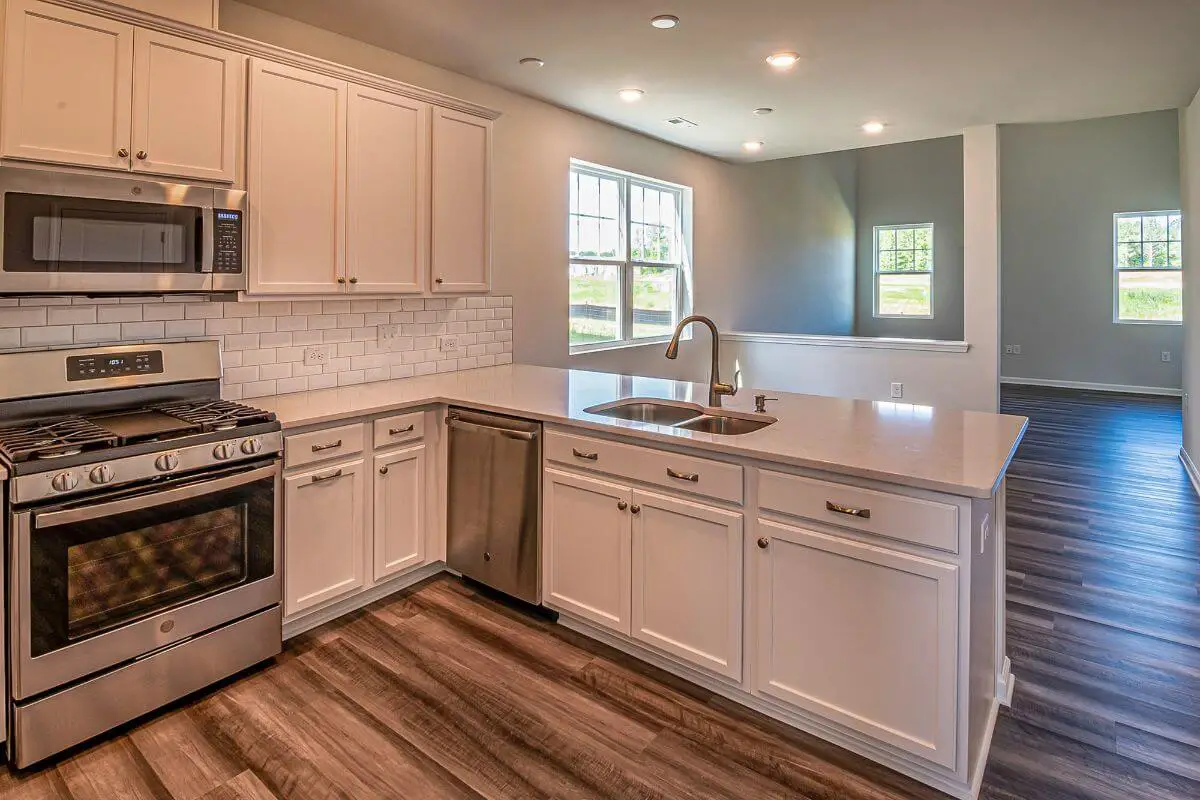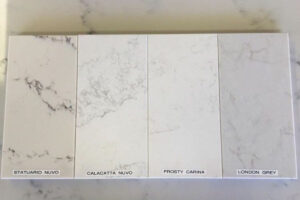Introduction: When it comes to selecting the ideal quartz countertop, two popular options that often come into consideration are Silestone Helix and Silestone Lyra. Both of these engineered stones offer incredible beauty and durability for various applications in homes and commercial spaces. In this article, we will explore the characteristics of each surface, their differences, and how to choose the most suitable option for your specific needs.
What is Silestone Helix? Silestone Helix is a premium quartz surface known for its stunning marble-like appearance. It features a soft, white background with elegant gray veining that adds a touch of sophistication to any space. This material is a favorite among homeowners and designers seeking a classic and timeless look without the maintenance associated with natural marble.
What is Silestone Lyra? Silestone Lyra, on the other hand, is another exquisite quartz surface that mimics the appearance of natural marble. It boasts a soft, creamy white backdrop with subtle, delicate veins in a lighter shade of gray. This particular design exudes elegance and grace, making it an attractive choice for various interior design styles.
Comparison of Silestone Helix and Silestone Lyra:
- Appearance and Design:
- Silestone Helix offers a more pronounced and bold veining pattern, making it an excellent option for creating a statement piece in the kitchen or bathroom.
- Silestone Lyra, with its subtle and delicate veining, provides a more understated and soothing ambiance, perfect for a minimalist or modern aesthetic.
- Composition and Durability:
- Both Silestone Helix and Lyra are composed of approximately 90% natural quartz crystals, mixed with resins and pigments for added strength and color consistency.
- They are highly durable and resistant to scratches, stains, and impact, making them ideal for high-traffic areas.
- Maintenance and Cleaning:
- Both surfaces require minimal maintenance, as they are non-porous and do not require sealing.
- Regular cleaning with mild soap and water is sufficient to keep them looking pristine.
- Cost:
- The cost of Silestone Helix and Lyra may vary depending on the region and supplier.
- Generally, Silestone Helix may be slightly more expensive due to its unique and bold veining pattern.

Which Silestone is Suitable for Different Settings?
- Kitchen Countertops:
- Silestone Helix’s striking appearance can serve as a focal point in the kitchen, complementing various cabinet styles and colors.
- Silestone Lyra’s subtle design can create a harmonious and cohesive look, especially in kitchens with a minimalist or Scandinavian theme.
- Bathroom Vanities:
- Both surfaces are excellent choices for bathroom vanities, offering beauty and durability.
- Silestone Helix may add a touch of luxury, while Silestone Lyra provides a calming and serene atmosphere.
- Commercial Spaces:
- In commercial settings, Silestone Helix can make a bold statement, leaving a lasting impression on clients and visitors.
- Silestone Lyra’s elegance can create a welcoming and professional environment, suitable for various businesses.
Pros and Cons of Silestone Helix:
- Pros:
- Striking and unique veining pattern
- Timeless and sophisticated appearance
- High durability and resistance to damage
- Cons:
- Slightly higher cost compared to other quartz options
- May not be suitable for those seeking a more subtle design
Pros and Cons of Silestone Lyra:
- Pros:
- Subtle and delicate veining pattern
- Fits well in a wide range of design styles
- Durable and easy to maintain
- Cons:
- Might not make as bold of a statement as Silestone Helix
- Some customers may prefer more pronounced veining
Customer Reviews and Testimonials: Customer reviews and testimonials are essential in the decision-making process. While some homeowners may prefer the striking look of Silestone Helix, others may opt for the serene charm of Silestone Lyra. It’s crucial to consider personal preferences and the overall design concept when choosing the perfect quartz countertop.
Conclusion: In conclusion, both Silestone Helix and Silestone Lyra are exceptional choices for quartz countertops. Each option offers its own unique charm, catering to different design preferences and settings. Whether you prefer the bold statement of Helix or the understated elegance of Lyra, both surfaces promise durability, low maintenance, and timeless beauty. Remember to consider your specific needs and preferences when making the final decision.
FAQs:
Q: Can Silestone Helix be used for flooring applications?
A: Yes, Silestone Helix is suitable for flooring and can add a touch of luxury to any room.
Q: Are Silestone countertops heat-resistant?
A: Yes, both Silestone Helix and Lyra are heat-resistant, making them suitable for kitchen applications.
Q: Does Silestone require sealing like natural stone countertops?
A: No, Silestone is non-porous and does not require sealing.
Q: Is Silestone Helix suitable for outdoor use?
A: While Silestone is durable, it is not recommended for outdoor installations due to prolonged exposure to UV rays.
Q: Can I place hot pots and pans directly on Silestone countertops?
A: Although Silestone is heat-resistant, it’s advisable to use trivets or hot pads to prevent potential damage over time.



